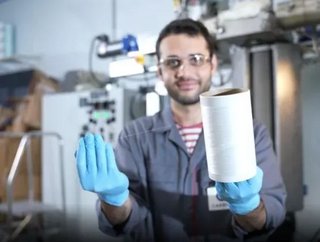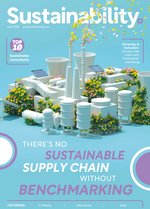Carbios, On, Patagonia, PUMA and Salomon in circularity pact

Carbios, a leading developer of enzymatic solutions dedicated to the end-of-life of plastic and textile polymers, has signed a two-year agreement with On, Patagonia, PUMA, and Salomon, to develop solutions that will enhance the recyclability and circularity of their products.
Emmanuel Ladent, Chief Executive Officer of Carbios comments: “This Consortium model has proved to be very efficient based on the success of the milestones previously achieved in packaging. We are very pleased to partner with these prestigious brands, On, Patagonia, PUMA, and Salomon. Our common goal is to contribute to reducing the environmental impact of the textile industry by offering an industrial solution to recycle polyester fibres and help our partners to meet their sustainable development goals.”
Fibre-to-fibre recycling and circularity models
The challenge the four brands share is that their ambitious sustainable development goals can only partially be met by conventional recycling technologies which mostly target bottle-to-fibre recycling. Future regulations will require more circularity in packaging and textile. Yet the market consensus is that there will soon be a shortage of PET bottles, as they will be used for circular production methods in the Food & Beverage Industry.
Speeding up the introduction of Carbios’ biorecycling technology is, therefore, an important part of the deal. The biorecycling process uses an enzyme capable of selectively extracting the polyester, recovering it to recreate a virgin fibre. This technology makes it possible to recover the PET polyester present in all textile waste that cannot be recycled using traditional technologies.
Carbios and the four companies will also research how products can be recycled, develop solutions to take-back worn polyester items, including sorting and dismantling technologies, and gather data on fibre-to-fibre recycling as well as circularity models.
Adrianne Gilbride, Senior Sustainability Manager at On, says: “On is committed to becoming fully circular before the end of the decade. Our partnership with Carbios and the other consortium members is an important step towards enabling the industry to game-changing circular technologies at scale. Fiber-to-fiber recycling is a key building block in closing the loop within the textile and footwear industry".
Natalie Banakis, Materials Innovation Engineer Patagonia, adds: “At Patagonia we are actively using our business to “save the Home planet”. We are excited to partner with Carbios and the textile consortium to work collaboratively to reduce waste produced by textiles. The textile waste problem is bigger than one company or solution, and Patagonia is excited to be working in a new format to solve this problem.”

Howard Williams, Director Global Innovation Apparel and Accessories at PUMA adds: ”As part of our Forever Better sustainability strategy, we aim to use 75% recycled polyester in our Apparel and Accessories by 2025. The partnership with Carbios and their innovative biorecycling methods offer a promising approach to reach our goals and make our industry as a whole more circular.”
Olivier Mouzin, Footwear Sustainability Manager at Salomon, concludes: ”At Salomon, we provide advanced sports solutions for all the outdoor participants, from the elite to the enthusiasts. Therefore, it is a natural decision for us to join this consortium made up of clothing and footwear companies, as well as Carbios, to form a new organisation for advancing textile recycling that will help create a sustainable future for all Outdoor players. Our goal in joining the consortium is to bring awareness to the end-of-life of textiles, with the ambition of establishing true circularity within the textile industry. The companies in the consortium aim to do this by discovering ways to recycle fibres from one product into another. Partnering with Carbios—a green chemistry leader offering a bio-recycling process that recycles apparel and footwear materials into thread for new products—better enables us to accomplish this goal.”

About Emmanuel Ladent
Emmanuel Ladent, a graduate of the Neoma Business School, has 30 years of experience in the automotive sector and more specifically in mobility.
Prior to joining Carbios, Ladent managed the MICHELIN Group’s largest business line, the Automotive Global Brands division. His management career is characterised by a strong international background, with more than 20 years spent working on several different continents. Specialised in business transformation through innovation, Mr. Ladent has contributed to the development of subsidiaries with multi-billion euro turnovers. Through strong leadership, he has been able to unite interdisciplinary and intercultural teams around a common vision and ambitious goals.
About Carbios
Established in 2011 by Truffle Capital, Carbios is a green chemistry company, developing biological and innovative processes. Through its unique approach of combining enzymes and plastics, Carbios aims to address new consumer expectations and the challenges of a broad ecological transition by taking up a major challenge of our time: plastic and textile pollution.
Carbios deconstructs any type of PET (the dominant polymer in bottles, trays, textiles made of polyester) into its basic components which can then be reused to produce new PET plastics with equivalent quality to virgin ones. This PET innovation, the first of its kind in the world, was recently recognized in a scientific paper published in front cover of the prestigious journal Nature. Carbios successfully started up its demonstration plant in Clermont-Ferrand in 2021. It has now taken another key step towards the industrialization of its process with the construction of a first-of-a-kind unit in partnership with Indorama Ventures.
In 2017, Carbios and L’Oréal co-founded a consortium to contribute to the industrialization of its proprietary recycling technology. Committed to developing innovative solutions for sustainable development, Nestlé Waters, PepsiCo and Suntory Beverage & Food Europe joined this consortium in April 2019.
The Company has also developed an enzymatic biodegradation technology for PLA-based (a bio sourced polymer) single-use plastics. This technology can create a new generation of plastics that are 100% compostable in domestic conditions, integrating enzymes at the heart of the plastic product.







